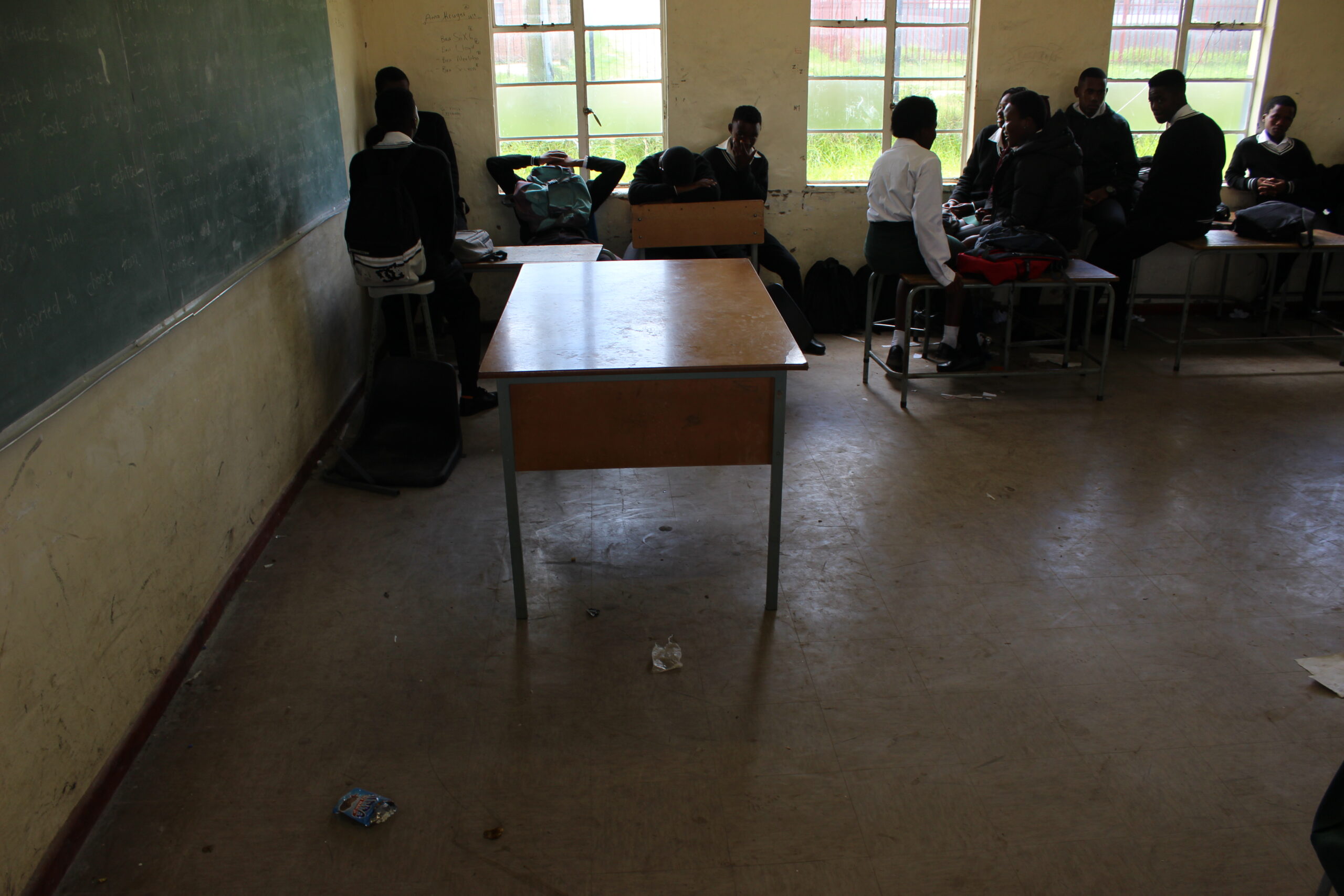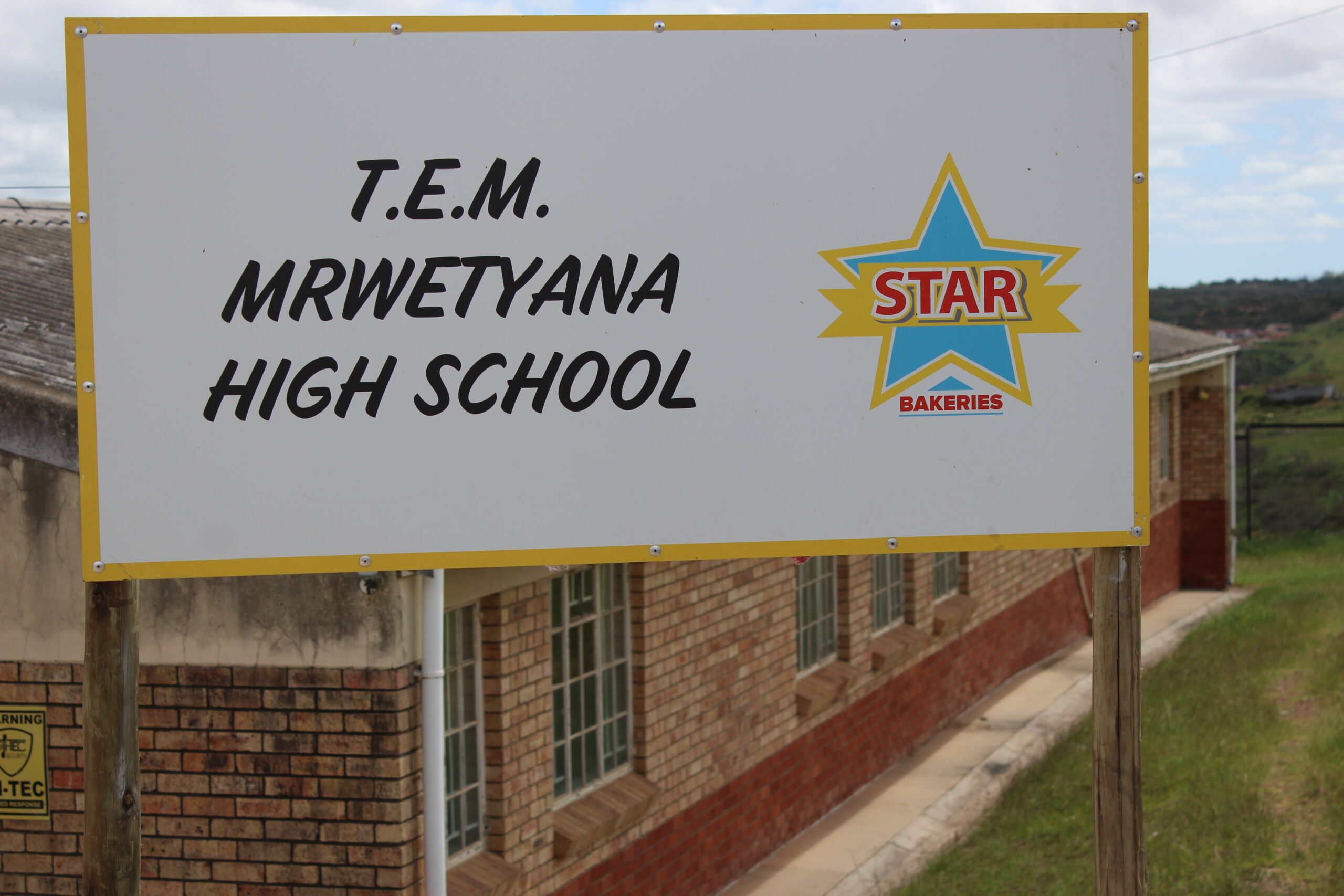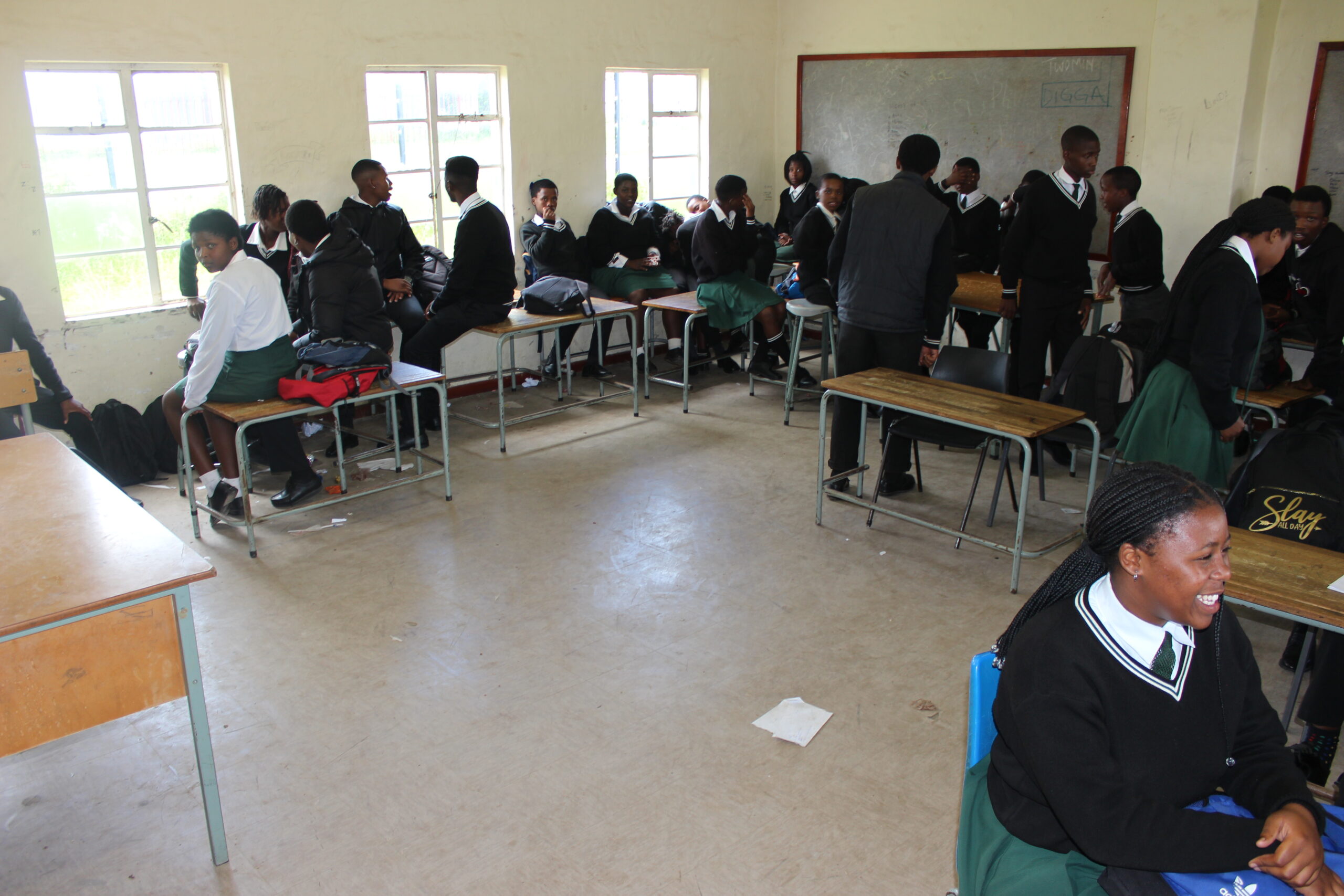By MIHLALI MPENDU and SIBABALWE TAME
The shortage of chairs, desks and teachers is undermining teaching and learning at Mrwetyana Secondary School.
The beleaguered school averages 50 or more learners in every classroom, with more than 60 learners in some classes. Teachers say they are struggling to educate learners with some standing up for lack of chairs and others sitting on desks.
Meanwhile, retired teachers have not been replaced. Learners are left to self-study while available teachers rotate and sacrifice their scheduled free periods to teach unattended pupils.
“We are not coping – there is no effective learning and teaching,” said Mrwetyana vice-principal and acting principal Nomalungelo Tambo.

The school increased its matric pass rate to 74% in 2022, a remarkable achievement in light of the considerable challenges.
In 2022, the school generated around R30 000 from self-funded projects to buy 100 chairs. But, still, there are dire shortages. Enrollments were high in 2023, and much more furniture is needed.
Tambo said the school had gone “way beyond its means” to give students the right learning environment. They had borrowed community hall chairs and sacrificed staff room chairs for learners.
Tambo said the Department of Education had confirmed that chairs and desks could be provided, but they were never delivered.
A possible solution would be to separate the learners into two classes, but there would be no furniture in the second classroom.
The learners have contributed towards the cause by generating pledges of assistance from their parents, who are concerned about their children’s education. Tambo plans to summon a parents’ meeting to solicit help with temporary desks and chairs.
She said she had approached the district director about the school’s teacher shortage and a substitute principal.
In addition to her dual role as acting principal and vice principal, Tambo teaches two Grade 12 classes, Economics and Business Studies.
She sent the district director a message expressing their need for qualified teachers to educate their learners.
“But we have no hope,” she said.




